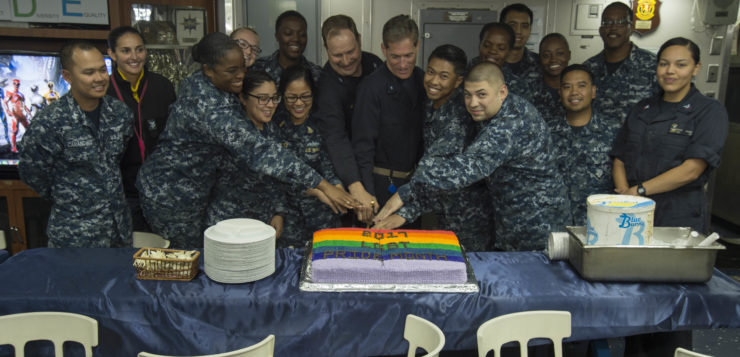
Two weeks ago, the Supreme Court decided in a 5-4 vote to allow a federal ban on transgender people serving in the military to proceed. The question I have is, what does transgenderism have to do with patriotism? The United States military permits both men and women to serve, and transgender people are men and women just like everyone else. They are just as capable of fulfilling the physical and mental requirements to serve as cisgender people are and therefore should be permitted to do so.
It was a little over one year ago that the Pentagon was forced to allow transgender applicants to join the military despite a presidential ban on their service. Now the Supreme Court has lifted two injunctions on the ban, while cases challenging the policy work their way through the lower courts.
One of the arguments made in favor of barring transgender people from enlisting is that their presence is disruptive, potentially weakening the military’s fighting force. But there’s no proof of that. In fact, I’ve performed gender-affirming surgeries on a number of patients who have had distinguished careers in the military.
This includes Renee Ramsey, the world’s oldest transgender patient, who was a career Green Beret Army officer. Ramsey and others like her should be commended for their patriotism, not excluded from the fight. Without exception these people are brave, engaged members of the military who serve our country with honor and distinction. I would say they may even be more patriotic than the average service member because they recognize and appreciate their freedom to be openly transgender in the U.S., while people in many other countries lack that right.
I’ve also heard the financial argument for a transgender troop ban; people don’t want the military to foot the bill for the transgender surgeries of its members. It’s important to note, though, that not all transgender people pursue surgeries as part of their transition. In fact, only a handful of transgender people currently serving in the military are requesting gender-affirming surgery at this time. The collective price tag for those procedures is still a pittance compared to the rest of what the military covers.
I believe the pushback on accepting transgender people in the military, disguised as concern for this country’s safety and financial security, is based on ignorance and misinformation. As challenges of the ban move forward, approximately 15,000 active duty transgender troops face discharge. As a result, their impending departure will create vacancies and vulnerabilities. Paring down our military just because some service members happen to be transgender defies reason, and I’m hopeful this policy will become resolved in the lower courts, allowing transgender people to continue to be able to serve their country.
 Dr. Sherman Leis is a pioneer in transgender surgery, performing his first male to female surgery in 1976, and founder of the Philadelphia Center for Transgender Surgery, located in Bala Cynwyd, PA.
Dr. Sherman Leis is a pioneer in transgender surgery, performing his first male to female surgery in 1976, and founder of the Philadelphia Center for Transgender Surgery, located in Bala Cynwyd, PA.






